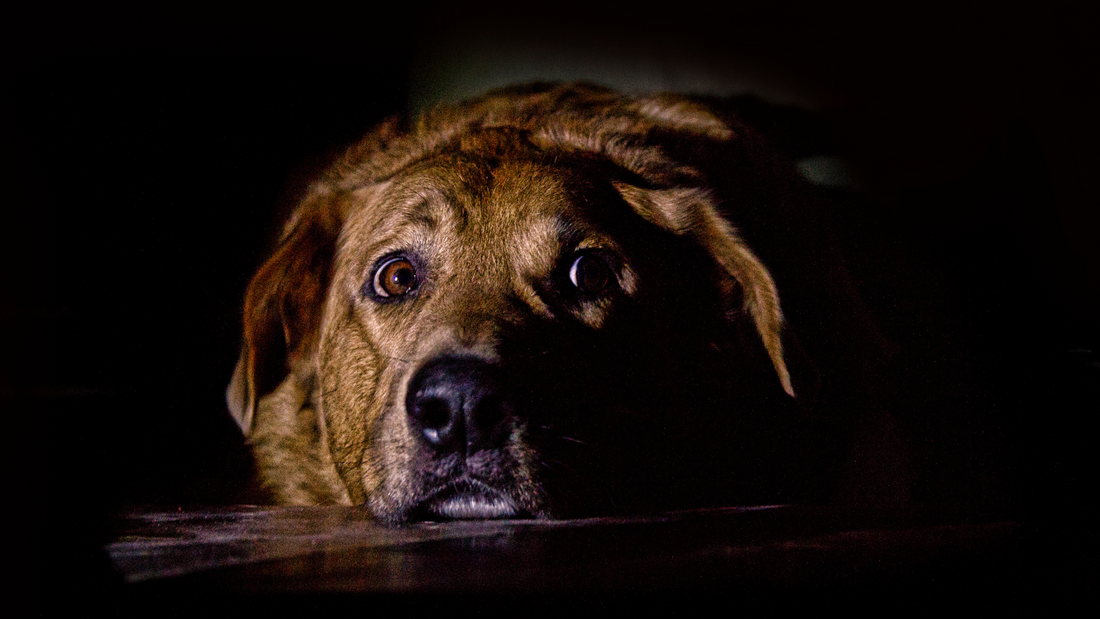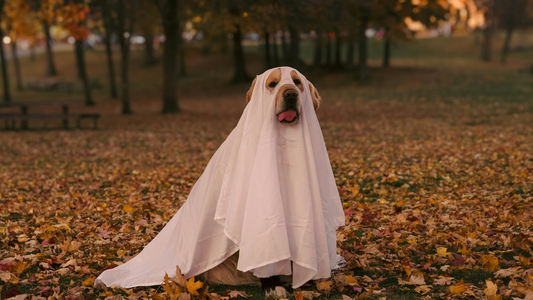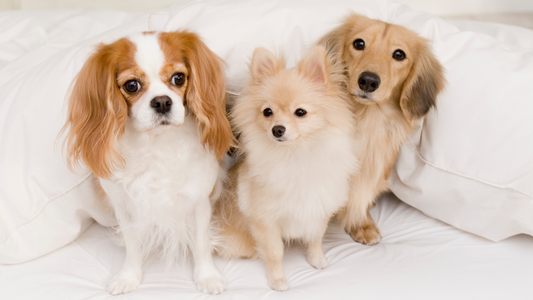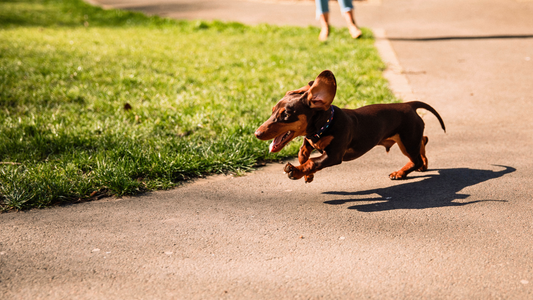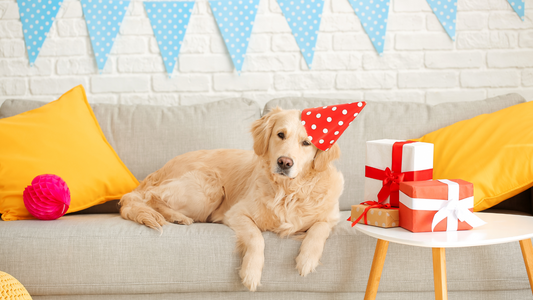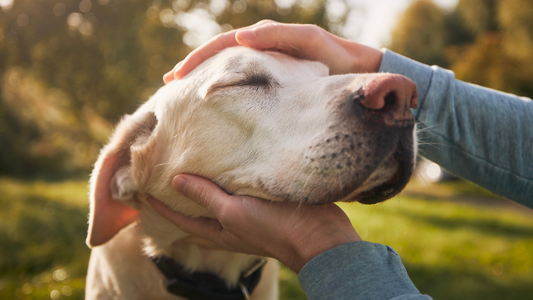The days are getting darker, colder, and wetter... and for your dog, that means more time spent in the dark. Maybe they’re barking more than usual or seem a bit more nervous? And now you might be wondering, “Is my dog afraid of the dark?”
To put it simply: it's unlikely. But what accompanies night and darkness might be the root of some fears.
Why might dogs get scared in the dark?
During the day, our dogs are usually busy with one thing or another. There are activities, noises, comings and goings around them, playtime, walks, and toys. Plus, there's the security of knowing we are there to handle the environment and anything potentially scary. We are their guardians, their sanctuary.
At night, things are quite different for your dog. You’re asleep, there are no distractions; and this can unsettle many dogs!
First of all, strange noises stand out more. Neighbouring sounds, plumbing noises, cars passing by, or voices heard in the middle of the night; your dog's hearing is much more sensitive than ours.
So, it’s likely that your dog isn’t afraid of the dark the same way us humans are (which stems from not being able to see our surroundings),but of each isolated and amplified noise. Let's not forget that dogs can hear from a distance four times greater than we can!
Senior dogs may also experience confusion and/or joint pain at night, making them more inclined to pace or pant at night.
My dog might not be afraid of the dark but…
Let's put ourselves in our dogs' shoes, who aren’t so different from us! For example, without necessarily being afraid of the dark, we can be a bit more on guard at night or in the darkness.
Imagine a night-time scene: you’re asleep and woken up by a strange noise from the kitchen. You’re instantly alert and try to figure out what it could be. You might immediately think of an intruder or other threat. You might grab your phone or even an object for self-defence. If you sleep with someone, you wake that person up – there is strength in numbers.
Our dogs, who generally descend from those bred specifically to alert us to dangers, will behave similarly. And it’s often not just the big guard dogs: many small breeds were developed as alert-barkers in temples or monasteries, or as protectors of ladies. Then there are the terriers, both reactive and vocal, who won’t hesitate for a second before waking up the whole household!
When you’re asleep or in a completely different room, your dog doesn’t have many options when they hear strange or sudden noises. They might decide there’s nothing to worry about and go back to sleep. Congratulations, you can continue sleeping!
But they might feel there’s a danger: then they’ll want to alert and protect. Or, they might feel they need your help because they’re scared and anxious.
How to stop your dog from reacting in the middle of the night?
Some factors can encourage a more intense, more dramatic, more frequent response from your dog. There may be ways to limit this behaviour if it becomes problematic for you or the neighbours, or if it causes stress and anxiety for your dog. But ultimately, it’s mostly… dog behaviour!
For most dogs, their owner is their everything. They look to us to know how to behave, when to relax (or conversely when to worry) in order to feel safe.
At night, when a dog is alone in a room, they don’t have our presence to reassure them and know how to act. They can then feel less confident, especially if they suffer from separation anxiety or are naturally fearful.
Finally, it’s possible that what makes your dog agitated at night isn’t fear, but boredom. This can be true of dogs who don’t get enough physical and/or mental exercise during the day. Eight hours per night, doing nothing, will seem long to them! They’ll be much more likely to bark at the slightest breeze, if only to occupy themselves.
My dog barks at night, what can I do?
If your dog shows signs of anxiety, fear, or boredom when you go to bed, try these tips.
- Try changing their sleeping spot. If they can normally hear every outside noise (neighbours, cars, wildlife), find a quieter spot.
- Mask the surrounding noise with white noise tracks or soft music.
- Close the curtains if outside movements disturb or set your dog off.
- If your dog sleeps in another room, a solution might be to invite them into your bedroom. The safety of your presence might be just what they need to feel confident and relaxed, able to sleep without staying on high alert.
- Make sure your dog gets enough exercise during the day to be tired and sleep well at night.
-Take them out for a bathroom break before bed: a full bladder will prevent your dog from sleeping well. They’ll then be more disposed to hear every noise, or even wake you up to go outside.
If none of this works, or if your dog shows other signs of discomfort at night, consult a vet or pet behaviourist. They can make sure there are not health issues and set up a program to help both you and your dog have peaceful nights.
Want to be the first to get your paws onto the hottest topics? Subscribe to our newsletter!
-------------------------------------------------------------------
The Doggy Grub blog is dedicated to helping dogs and their owners achieve happier, healthier lives, changing the way we feed our dogs one bowl at a time! If you would like to know more about our fresh food head to Doggy Grub


